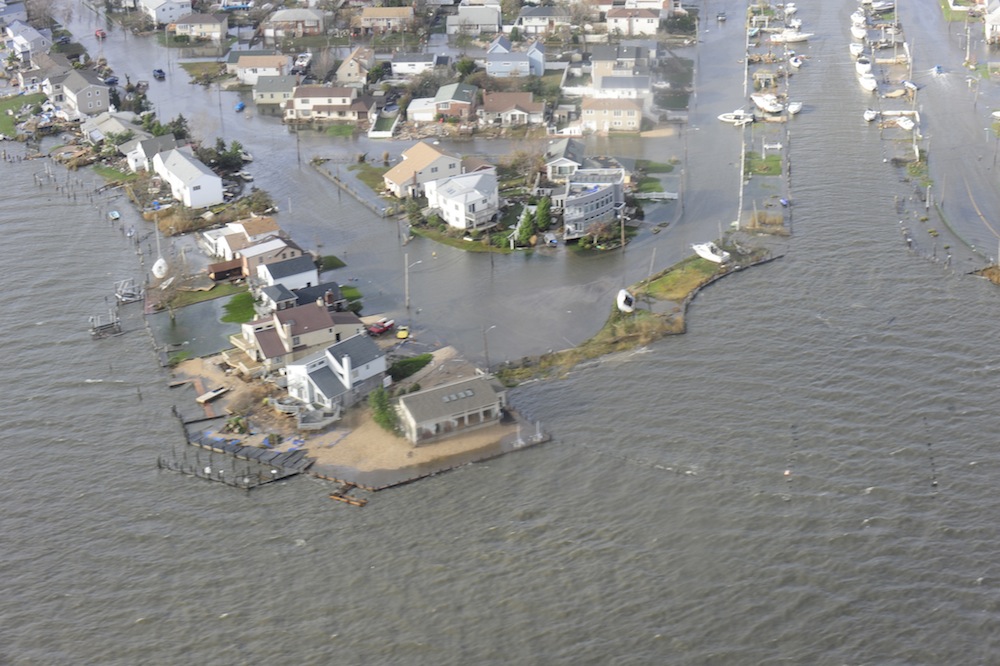Codes and standards concerning emergency backup power and other key resiliency matters should reflect lessons learned from Hurricane Sandy and other recent major storms, says Bhavesh Patel, vice president, global marketing for ASCO Power Technologies.
One standard, the NFPA 110: Standard for Emergency and Standby Power Systems, 2013 edition says, “EPSS (emergency power supply system) equipment should be located above known previous flooding elevations where possible.” And later states, “For natural conditions, EPSS design should consider the ‘100-year storm’ flooding level predicted by the Sea, Lake, and Overland Surges from Hurricanes (SLOSH) models for a Class A hurricane.”
“The qualifiers in the two paragraphs – ‘where possible’ and ‘should consider’ – can dilute the effect of the code if the project specifiers are not strict and careful in determining what ‘possible’ can entail,” Patel writes. “The words ‘where possible’ and ‘should consider’ are not as straightforward in conveying intent as a more emphatic ‘must,’ and leaves the door open for less sense of the need to comply.”
Patel notes that a post-Hurricane Sandy task force has recommended that New York City codes be updated to locate building equipment higher to avoid flood damage, require sewage valves to prevent backflows during flooding, and provide for easy access to backup generator hookups.
Related Stories
Codes and Standards | Mar 23, 2022
High office vacancies have cities rethinking downtown zoning
As record-high office vacancies persist in U.S. urban areas, cities are rethinking zoning policy.
Codes and Standards | Mar 22, 2022
Dept. of Energy awards $32 million for next-generation building retrofits
The U.S. Dept. of Energy has awarded a total of $32 million for more than 30 next-generation building retrofit projects that will dramatically improve affordable housing technologies, according to a DOE news release.
Legislation | Mar 18, 2022
New framework to help site community solar projects released
The Solar Energy Industries Association (SEIA) released a new report to aid policymakers in siting community solar projects.
Codes and Standards | Mar 17, 2022
Dept. of Energy seeks input on building-integrated photovoltaic systems
The U.S. Department of Energy (DOE) Solar Energy Technologies Office (SETO) and Building Technologies Office (BTO) recently issued a request for information to gather input on technical and commercial challenges and opportunities for building-integrated photovoltaic (BIPV) systems.
Legislation | Mar 16, 2022
Weak federal commercial real estate rules will hamper seizing Russian assets
Lax disclosure regulations that have made the U.S. a global hot spot for money laundering via real estate holdings will make it difficult for officials to seize properties from Russian oligarchs.
Codes and Standards | Mar 15, 2022
First company awarded Fitwel Certification in Senior Housing for Occupant Health & Wellness
The Springs at Greer Gardens in Eugene, Ore., is the first property to earn a Fitwel global health certification under the newly created senior housing scorecard.
Codes and Standards | Mar 10, 2022
HOK offers guidance for reducing operational and embodied carbon in labs
Global design firm HOK has released research providing lab owners and developers guidance for reducing operational and embodied carbon to meet net zero goals.
Codes and Standards | Mar 7, 2022
Late payments in the construction industry rose in 2021
Last year was a tough one for contractors when it comes to getting paid on time.
Codes and Standards | Mar 7, 2022
Massachusetts proposed energy code changes don’t ban gas
Proposed changes to the Massachusetts energy code would provide incentives for builders to fully electrify buildings, but not impose a ban on natural gas hookups.
Codes and Standards | Mar 4, 2022
Construction industry faces a 650,000 worker shortfall in 2022
The U.S. construction industry must hire an additional 650,000 workers in 2022 to meet the expected demand for labor, according to a model developed by Associated Builders and Contractors.

















